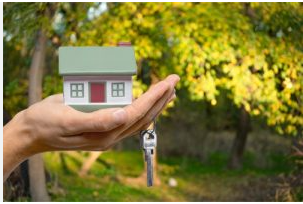Introduction
Buying a home is a milestone many aspire to achieve, but what if your credit score isn’t perfect—or even “good”? A low credit score can feel like a locked door in the real estate market, but it doesn’t have to be. The truth is, buying a house with bad credit is possible if you understand your options, prepare strategically, and work with the right resources.
In this guide, we’ll break down how credit impacts your home-buying journey, the programs that can help, and practical steps to turn your dream of homeownership into reality—even with a less-than-stellar credit score.
Understanding Bad Credit in the Home-Buying Process
Before we jump into strategies, it’s important to define what “bad credit” means in mortgage terms.
- Excellent Credit: 740 and above
- Good Credit: 700–739
- Fair Credit: 640–699
- Poor Credit: 580–639
- Very Poor Credit: Below 580
Mortgage lenders use your credit score to gauge how risky it is to lend you money. The lower your score, the higher the risk—often resulting in higher interest rates or stricter loan terms.
💡 Tip: Even if your score is under 580, certain programs (like FHA loans) may still be available with larger down payments.
Can You Really Buy a House with Bad Credit?
Yes—but it’s not as simple as walking into a bank and getting approved. You’ll need to:
- Choose the right loan program
- Offer a larger down payment
- Show stable income and low debt-to-income ratio (DTI)
- Demonstrate financial responsibility in other ways
Some lenders specialize in working with buyers who have poor credit, and there are government-backed loan programs designed for this exact situation.

Best Loan Options for Buyers with Bad Credit
1. FHA Loans
The Federal Housing Administration (FHA) backs loans with lower credit score requirements.
- Minimum credit score: 580 (with 3.5% down) or 500–579 (with 10% down)
- Competitive interest rates compared to conventional loans
- Flexible approval criteria
Learn more: FHA official site.
2. VA Loans
For active-duty service members, veterans, and certain military spouses, VA loans are a powerful option.
- No minimum credit score requirement (though most lenders prefer 620+)
- No down payment
- No private mortgage insurance (PMI)
3. USDA Loans
If you’re buying in a rural or qualifying suburban area, the US Department of Agriculture (USDA) offers loans with low interest rates and zero down payment.
- Recommended credit score: 640+
- Income limits apply
4. Non-Qualified Mortgage (Non-QM) Loans
These are offered by private lenders for borrowers who don’t fit traditional mortgage criteria.
- Flexible credit requirements
- May consider alternative income verification
- Higher interest rates and fees
Steps to Improve Your Chances of Approval
Even with bad credit, preparation can make or break your approval odds.
1. Check and Understand Your Credit Report
- Get free reports from AnnualCreditReport.com.
- Look for errors—incorrect accounts, outdated information, or fraudulent activity can drag down your score.
2. Reduce Your Debt-to-Income Ratio
Lenders prefer a DTI below 43%. You can achieve this by:
- Paying off high-interest debts
- Avoiding new loans or credit cards before applying
- Increasing your income if possible
3. Save for a Larger Down Payment
- A 10–20% down payment can offset your low credit score risk in the lender’s eyes.
- It can also reduce your monthly mortgage payment and interest rate.
4. Get Pre-Approved
- Pre-approval shows sellers you’re serious and lets you know your budget upfront.
- Multiple pre-approvals within 30–45 days won’t hurt your credit significantly.
Alternative Paths to Homeownership with Bad Credit
If traditional loans aren’t an option, consider these alternatives:
- Rent-to-Own Agreements – Rent the home with the option to buy later, often locking in a purchase price.
- Co-Signing with a Trusted Family Member – Their good credit can help secure better terms.
- Owner Financing – The seller acts as the lender, offering more flexible credit requirements.
Common Mistakes to Avoid When Buying with Bad Credit
- Applying to too many lenders without strategy—this can drop your score further.
- Ignoring other costs like property taxes, insurance, and maintenance.
- Not having an emergency fund—unexpected expenses can lead to missed payments.
Internal & External Resource Links
- FHA Loans Explained (internal)
- First-Time Homebuyer Programs (internal)
- Tips to Improve Your Credit Score (internal)
- HUD FHA Loan Information (external)
- Annual Credit Report – Official Site (external)
Conclusion
While bad credit can make the home-buying journey more challenging, it doesn’t have to stop you. By exploring FHA, VA, USDA, or Non-QM loans, improving your financial profile, and considering alternative paths, you can still secure a home loan that fits your needs.
The key is preparation: know your credit, fix what you can, save aggressively, and work with lenders who understand your situation. Your dream of homeownership might be closer than you think—bad credit and all.
Alt Text for Images (examples):
- Couple reviewing mortgage options with a lender – buying a house with bad credit
- Infographic showing loan programs for low credit score homebuyers
If you want, I can now add optimized images, a keyword-rich FAQ section, and a schema markup so your article ranks even better in Google search. That would push this into the 1,400–1,500 word range and strengthen SEO.